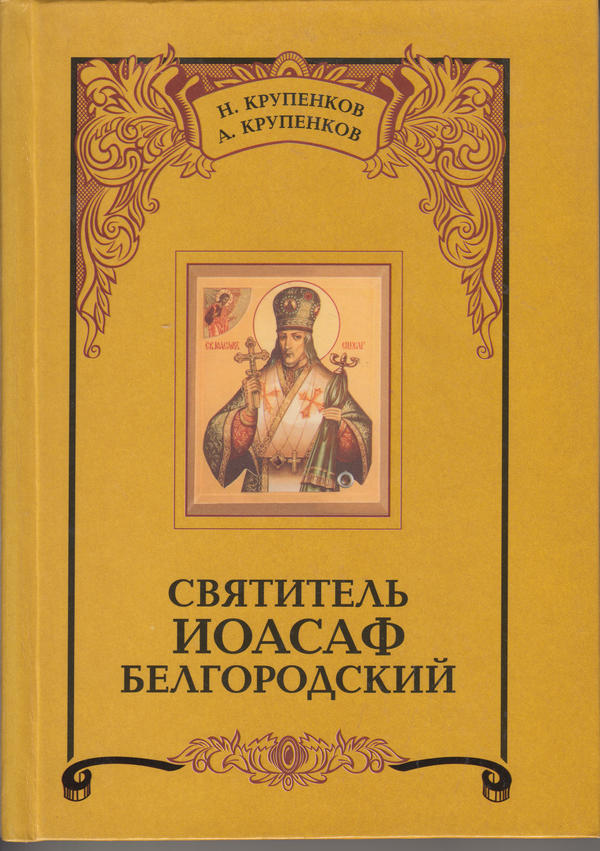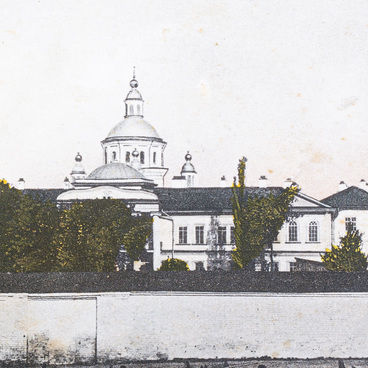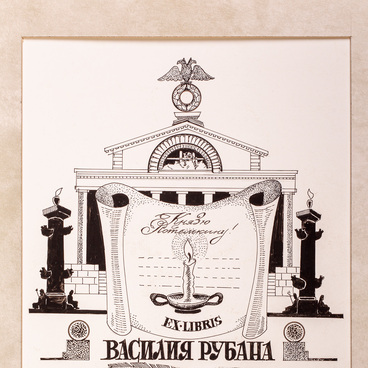Alexander Nikolayevich Krupenkov, a journalist, local history expert, author, and honorary citizen of Belgorod, was born in Chita in 1951. In his teens, he moved with his parents to Belgorod, finished school there and graduated from the faculty of foreign languages of the Belgorod Pedagogical Institute, worked at school and in a children’s activity center, the Pushkin Library-Museum, and a bureau of guided tours. Together with his enthusiastic students, Alexander Krupenkov collected information about the soldiers buried in the city’s communal grave. That was the beginning of his passion for local history, which eventually grew into a professional interest.
Working in Moscow libraries and archives, Krupenkov learned about the heavenly patron of Belogorye — Joasaph (Gorlenko), who was virtually unknown to the public in those years. Attempts to order books about the saint were unsuccessful, but the researcher managed to find out the time of canonization — September 1911. As it was reasonable to suggest that such an event must have been covered in the press of the time, Krupenkov turned to popular magazines of the early 20th century and eventually found the information he had been looking for. The articles had to be copied by hand and then systematized and processed.
In 1991, in the year of uncovering the relics of the saint, a collection of essays by Alexander Krupenkov on the history of Belgorod was published, one of which was dedicated to Joasaph of Belgorod. At the same time, Nikolay Filippovich Krupenkov, the writer’s father and a journalist of the Belgorodskaya Pravda newspaper, suggested their working jointly as co-authors on a substantial book about this prominent ecclesiastical and historical person.
The book “Saint Joasaph of Belgorod” presents materials about the childhood and youth of the saint, his service as rector of the Mgarsky (Lubensky) monastery, and vicar of the Trinity-Sergius Lavra. The book is particularly focused on Saint Joasaph’s pastoral and educational activities in the rank of bishop of the diocese of Belgorod and Oboyan.
The book also describes the celebrations of 1911 dedicated to the canonization of the saint, the history of the loss and uncovering of the relics. “Annexes” contain a selection of items published in the “Kursk Diocesan Gazette” and other publications of the 19th — early 20th centuries and literary works about Saint Joasaph.
This copy of the book was donated to the Literature Museum by its authors, Nikolay Filippovich Krupenkov and Alexander Nikolayevich Krupenkov.
Working in Moscow libraries and archives, Krupenkov learned about the heavenly patron of Belogorye — Joasaph (Gorlenko), who was virtually unknown to the public in those years. Attempts to order books about the saint were unsuccessful, but the researcher managed to find out the time of canonization — September 1911. As it was reasonable to suggest that such an event must have been covered in the press of the time, Krupenkov turned to popular magazines of the early 20th century and eventually found the information he had been looking for. The articles had to be copied by hand and then systematized and processed.
In 1991, in the year of uncovering the relics of the saint, a collection of essays by Alexander Krupenkov on the history of Belgorod was published, one of which was dedicated to Joasaph of Belgorod. At the same time, Nikolay Filippovich Krupenkov, the writer’s father and a journalist of the Belgorodskaya Pravda newspaper, suggested their working jointly as co-authors on a substantial book about this prominent ecclesiastical and historical person.
The book “Saint Joasaph of Belgorod” presents materials about the childhood and youth of the saint, his service as rector of the Mgarsky (Lubensky) monastery, and vicar of the Trinity-Sergius Lavra. The book is particularly focused on Saint Joasaph’s pastoral and educational activities in the rank of bishop of the diocese of Belgorod and Oboyan.
The book also describes the celebrations of 1911 dedicated to the canonization of the saint, the history of the loss and uncovering of the relics. “Annexes” contain a selection of items published in the “Kursk Diocesan Gazette” and other publications of the 19th — early 20th centuries and literary works about Saint Joasaph.
This copy of the book was donated to the Literature Museum by its authors, Nikolay Filippovich Krupenkov and Alexander Nikolayevich Krupenkov.



